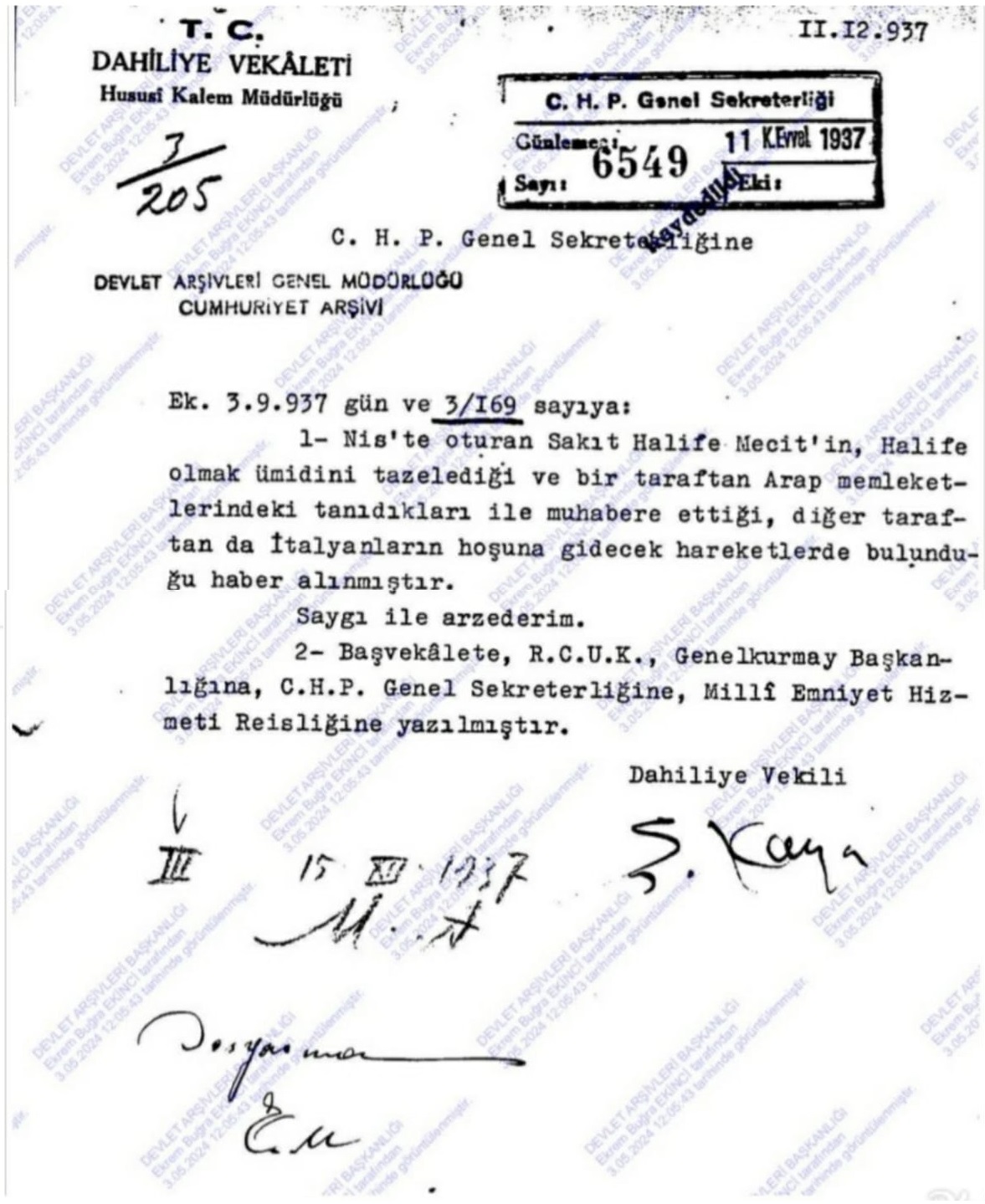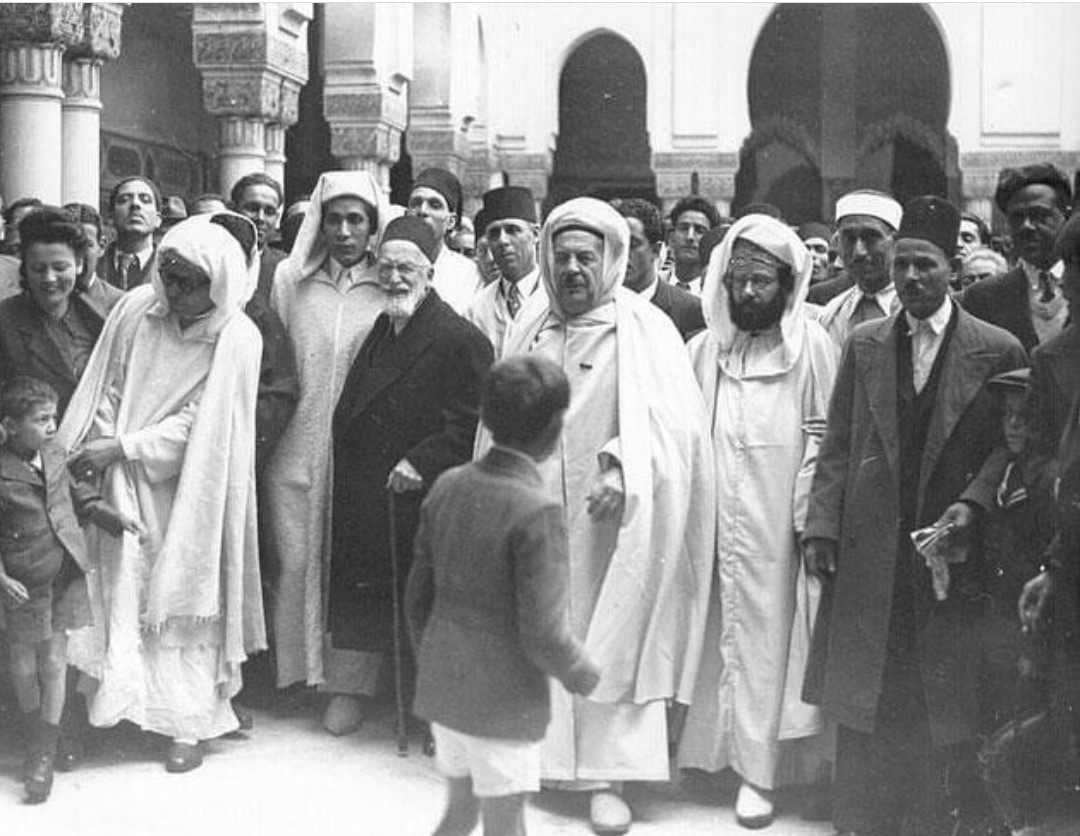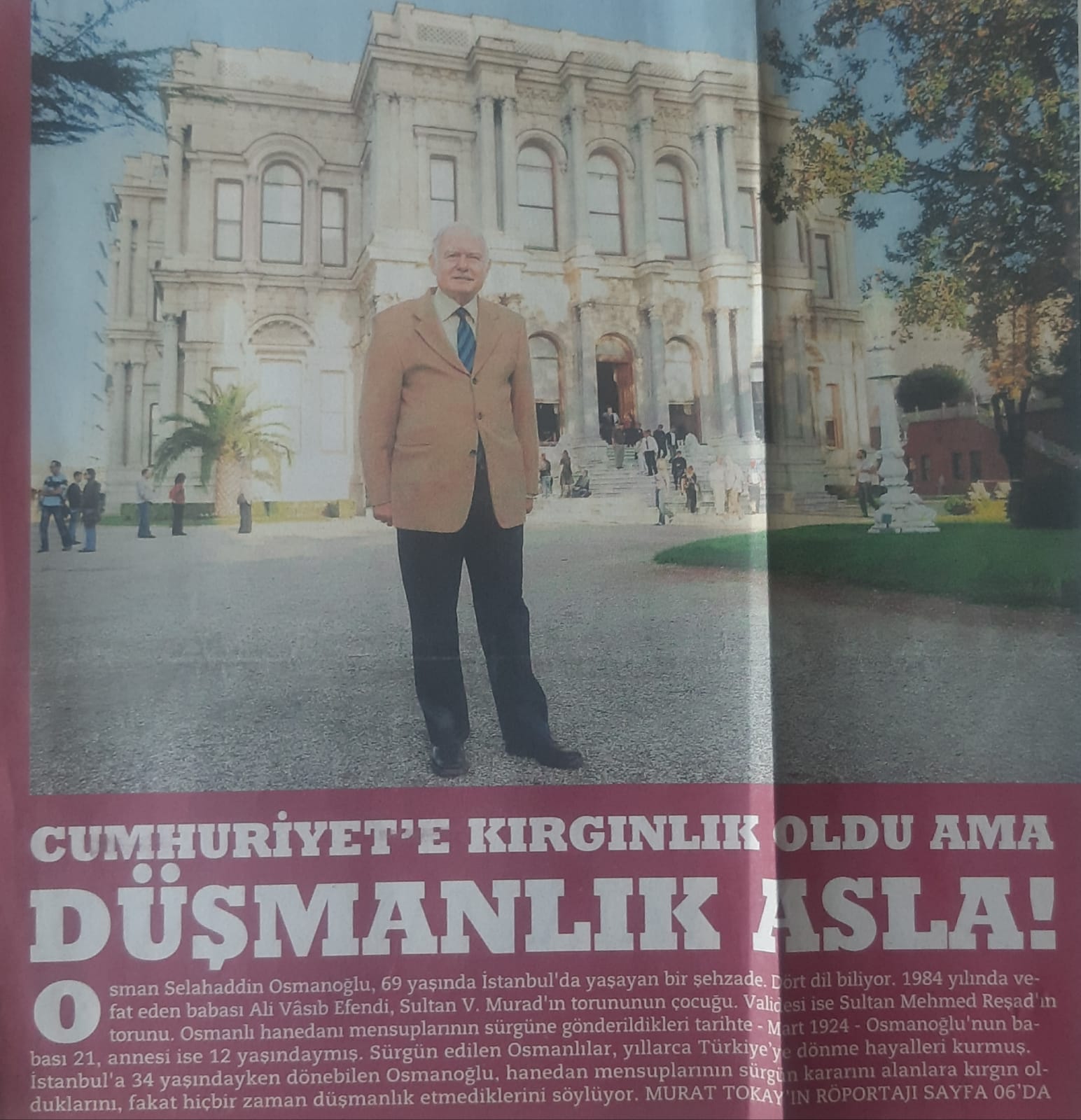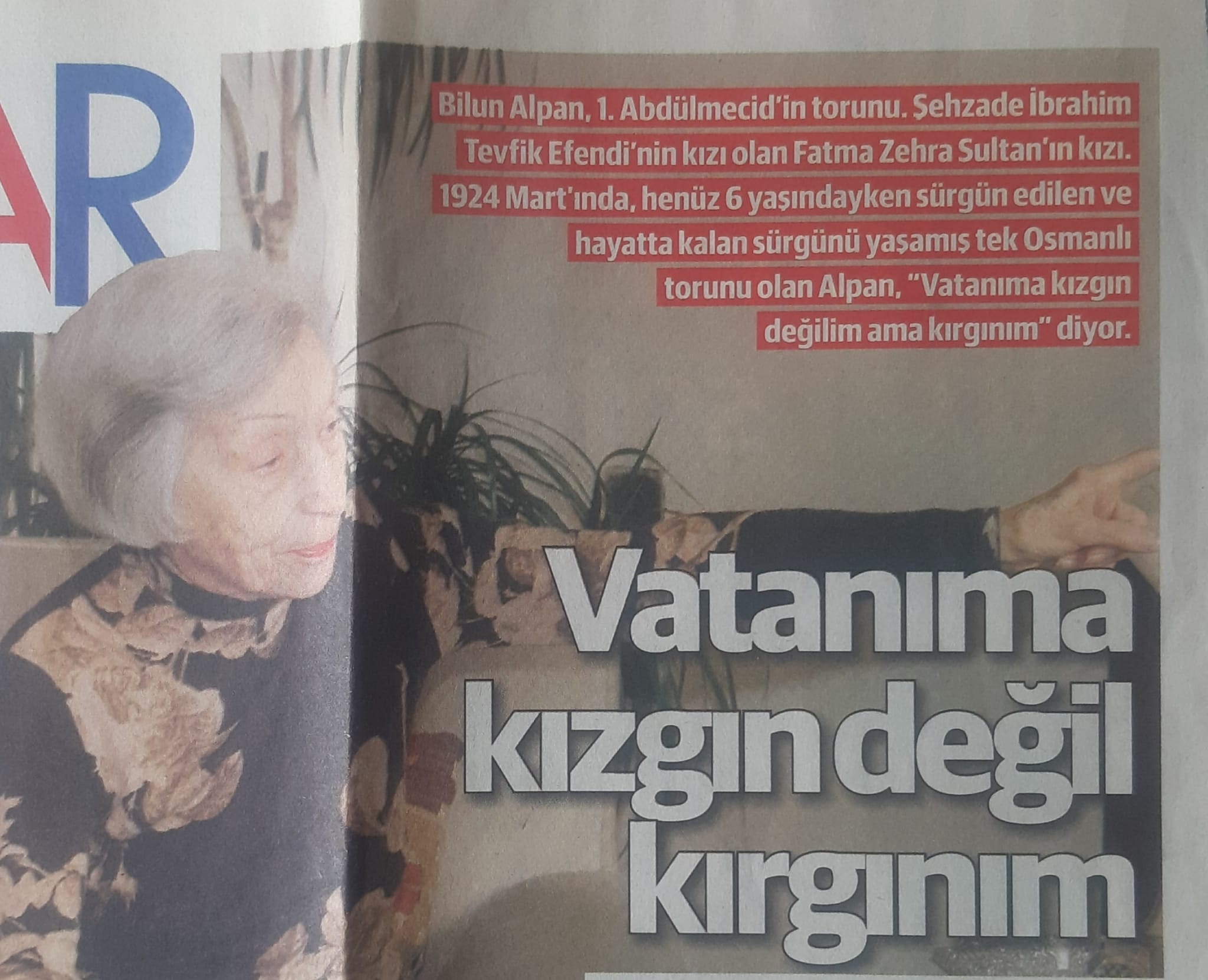.jpg)
EXILE DID NOT STOP THE PURSUIT OF THE OTTOMAN DYNASTY!
The members of the Ottoman dynasty today understood very well where they lived and the demands of the time. They knew exactly what to do and say.
Your Opinion on the Republic?
A cliché question often asked to those from the Ottoman dynasty: "What is your opinion on the Turkish Republic?" What could someone say about a system that expelled their entire family from the elderly to infants, stripped them of citizenship, confiscated their possessions, and condemned them to poverty?
These people, who knew very well the reality of the situation in their inner world, only expressed their true feelings in private circles. Their common sense and politeness prevented them from revealing these openly. We have personally observed this in almost every member of the dynasty we know. For those who can read between the lines of what they wrote and said, these sentiments are not hidden.
The head of the dynasty, Prince Osman Ertuğrul Efendi, summed up the situation cleverly with his statement: “If the dynasty had stayed in the country, Ankara wouldn't have been able to do what it wanted.” Their answers to such questions, often asked as if to extract a confession, were merely skillful plays on words.

Be Careful?
Even in exile, some remained cautious and tried to appear sympathetic to the revolutionaries, hoping they could return to their homeland. Prince Faruk would warn the princes, “Be sure not to wear the fez! The more Ankara sees us wearing fezzes, the more their resentment grows.”
Because they were intelligent and noble, and due to the realism instilled by what they had endured, they never engaged in politics and avoided, as much as possible, any words or actions that might put them in a difficult position. Even after the exile ended, they were still marked individuals.
After the return permission was granted, some members still felt the fear of exile deep in their bones. Neslişah Sultan, who lived through two exiles, warned her cousin Mihrişah Sultan: “Do not meet with the caliphate supporters! Otherwise, you'll get us expelled again.” Nevertheless, she was discerning enough to say, “Whatever is beautiful, my ancestors did it.”
One must not be deceived by their current Western appearance. They are aware that what happened was merely a wardrobe revolution. Nearly all of them are sincere people who are committed to democracy and human rights, with a strong sense of aesthetics and refined tastes.
What a Pity!
Sultan Mehmed VI's daughter and confidante, Sabiha Sultan, in a letter dated June 1, 1926, addressed to her husband Ömer Faruk Efendi, who was in Syria for her father's funeral, referred to the İzmir assassination attempt, saying:
“It is truly regrettable that an operation so perfectly planned has failed! What a pity, what a pity if a part of the opposition, undoubtedly comprising the finest segment of the country, is eliminated in this opportunity!”
When Hanzade Sultan suggested that her mother, Sabiha Sultan, write her memoirs, she replied, “No, I don't want to stir up any issues. Our era is over. I don't want the people in Türkiye to keep fighting. Let’s leave everything as it is.”

The Spy Within
When Sultan Mehmed VI was exiled, he issued proclamations highlighting the injustice of the treatment by the Ankara government. He held onto the hope that the situation would calm down shortly and he would return to his homeland.
However, after experiencing life in Malta and Hejaz and understanding the true intentions of the British regarding the sultanate and the new Türkiye, especially after the abolition of the caliphate and the expulsion of the dynasty, he completely lost this hope.
Nevertheless, Ankara, without any real need, opened a consulate in Genoa near the city of San Remo where the sultan lived to engage in intelligence activities. The court physician Reşad Pasha, Sultan's personal tobacco officer Şükrü, and even Zeki Bey were recruited by Ankara. They regularly reported back to Ankara. Out of shame, Reşad Pasha and later Zeki Bey committed suicide. After the sultan's death, Şükrü fell into poverty and sought refuge with Prince Abdülkerim Efendi in Damascus. The Turkish consul in Damascus convinced Şükrü to report on the prince and those around him in exchange for money, and for a while, he provided reports to Ankara.
Live Long, O Glorious Army, Live Long!
The dynasty openly expressed the injustice done to them, but none of them engaged in any political activity during exile to regain power. They were not wealthy or political figures even when they were in their homeland, so they lacked the means to undertake such actions.
Since the abolition of the sultanate and caliphate and the exile of the dynasty were already the wishes of the Allies, and no one could take such an initiative without their approval, Ankara’s concern on this matter was unfounded.
Sultan Mehmed VI's granddaughter, Hümeyra Hanımsultan, while in San Remo, would recount an incident between her and her grandfather about an anthem about the chiefs of Ankara movement, but she would twist the story due to this fear.
However, in an interview with a historical magazine, when asked, “What are your feelings towards the monarchy?” she replied, “Now people ask, ‘What are you?’ I say, ‘I’m a royalist.’ But in a very broad sense, not because I have a longing for restoration. My sympathy is towards royal traditions. (Laughing) I even support football teams like that. I support Holland and England just because they have royal teams. No one can take that away from me... But today, if they said there could be something other than a republic in Türkiye, I wouldn’t understand it.”

Ban on Politics
Greatly disturbed by the proclamation of Caliph Abdülmecid Efendi, the Ankara government sent a note to Switzerland requesting that the caliph be prevented from engaging in political activities or making statements. Realizing he could not live in Switzerland, the caliph moved to France, which accepted him on the condition that he refrained from political activities.
Despite already having a consulate in nearby Marseille, Ankara opened a new consulate in Nice to monitor the former caliph. The state archives are filled with absurd reports from this consulate, claiming that the caliph was involved in political affairs with the dynasty members, who were in fact living in poverty, and that he was trying to sell the caliphate.
When it was heard that the caliph might go to London for the opening of a mosque and possibly meet with the king, Ankara officially ensured that the British government would not grant him a visa. His planned trip to Jerusalem was also blocked in this way.
Marriages That Caused Fear
During the Sheikh Said incident, which spread through the eastern provinces in 1925, Ankara requested that Prince Mehmed Selim Efendi, who was living quietly in Damascus, be relocated to a place farther from the border. The prince, experiencing a second exile, was moved from Damascus to Beirut. Prince Ahmed Nihad Efendi, who was living in Aleppo, was also relocated to Beirut.
Ankara’s consulate in Alexandria and embassy in Cairo regularly received instructions from Ankara to be “vigilant” concerning Prince Ömer Faruk Efendi, who was living in Alexandria. Prince Ömer Faruk was one of the princes most feared by the republican government.
The marriages of dynasty members with certain Muslim dynasties always caused anxiety in Ankara. These marriages had the potential to strengthen the dynasty politically, socially, and economically, which was Ankara’s greatest fear.
When Caliph Abdülmecid Efendi’s daughter, Dürrişehvar Sultan, married the son of the Nizam of Hyderabad, one of the rulers of British India, in 1931, Ankara protested. London calmed the situation by assuring that the marriage had no political dimension.
The marriage of Sultan Abdulhamid II's son, Prince Abid Efendi, to Princess Seniye, the sister of King Ahmed Zogu of Albania, caused a diplomatic crisis between Ankara and Tirana. Since the king had no children, his sister and thus Prince Abid became heirs to the throne. Tirana had to provide assurances to Ankara due to this marriage.
Bahaddin Sami Bey, the grandson of Mediha Sultan, applied for a position as a translator in the British military but was rejected with the reason that “It would be inappropriate for the British government to support a family with hopes of restoring the Ottoman sultanate.” This rejection occurred because the then Prime Minister of Türkiye, Şükrü Saraçoğlu, sent an informal note about this matter to the British government in 1940.

They Drowned the Sultans
The official ideology's negative view of the dynasty did not change for many years. Even after the exile order was lifted, members of the dynasty living in Türkiye had to hide their identities for many years. The insults and slander about their ancestors heard in schools left psychological scars on these children.
Vildan Hanım, the granddaughter of Cemile Sultan, once broke into tears when she heard the lyrics of a song circulating at the Kızıltoprak Enver Pasha primary school in the 1930s: “They drove away the enemies, they drowned the sultans.” Images of her exiled grandparents flashed before her eyes.
Fortunately, her teacher was compassionate enough not to have the class sing that song. (Memet Fuat, Gölgede Kalan Yıllar *Years in the Shadows*). Similar incidents were recounted by Fatma Sultan's granddaughter Resan and Zekiye Sultan's granddaughter Yasemin Hanım, but their teachers were not as merciful.
Önceki Yazılar
-
DEATH IS CERTAIN, INHERITANCE IS LAWFUL!25.06.2025
-
THE SECRET OF THE OTTOMAN COAT OF ARMS18.06.2025
-
OMAR KHAYYAM: A POET OF WINE OR THE PRIDE OF SCIENCE?11.06.2025
-
CRYPTO JEWS IN TURKEY4.06.2025
-
A FALSE MESSIAH IN ANATOLIA28.05.2025
-
WAS SHAH ISMAIL A TURK?21.05.2025
-
THE COMMON PASSWORD OF MUSLIMS14.05.2025
-
WERE THE OTTOMANS ILLITERATE?7.05.2025
-
OTTOMAN RULE BENEFITED THE HUNGARIANS30.04.2025
-
An alternative state to Istanbul in Anatolia: THE ANKARA ASSEMBLY23.04.2025